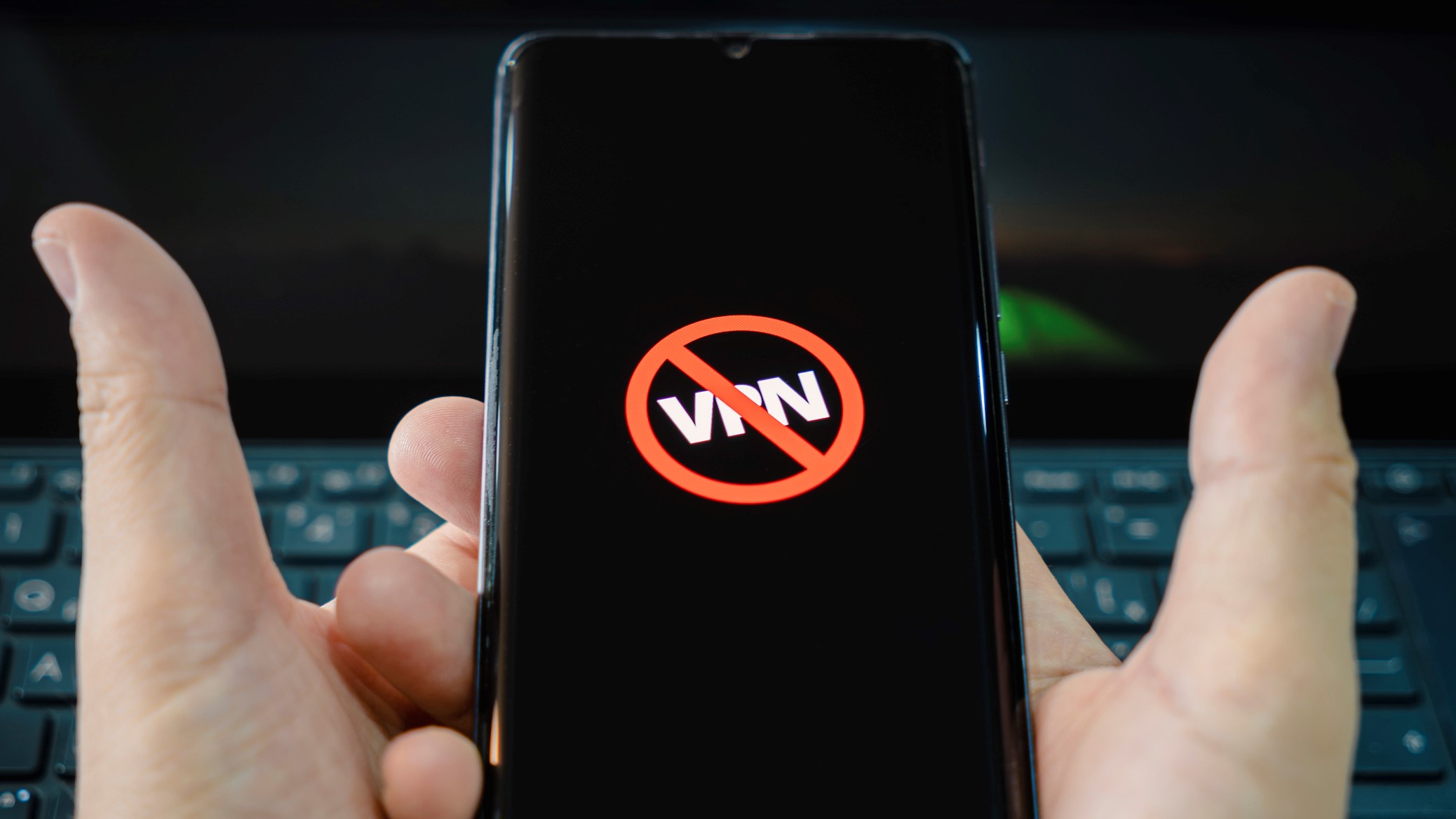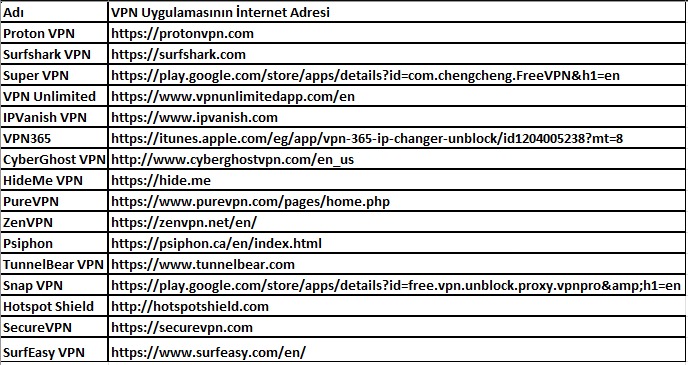What's the newest wave of Turkey VPN bans tell us about the country's internet?
Around 16 VPN providers have been targeted by the recent blocks

Around 16 Turkey VPN providers have been targeted by a new wave of censorship, Deutsche Welle’s Turkish edition (DW Türkçe) reported.
The recent crackdown appears to come as yet another attempt to prevent citizens from accessing restricted websites, including local independent news sites or international media outlets (like DW itself.) As a result, people in Turkey have been increasingly relying on VPN services thanks to their ability to bypass geo-restrictions.
As the internet in Turkey becomes more and more limited, I talked to some of the VPN providers affected by the block and experts inside the country to understand what's at stake for citizens. Spoiler alert: luckily, there are still some ways to get around Ankara's harsh censorship.
Turkey VPN bans: an inevitable outcome
According to Ali Safa Korkut, Project Coordinator at Free Web Turkey (a platform monitoring and fighting against online censorship in the country), the recent block on VPN services is perfectly in line with Erdoğan's desire to control information spreading across the internet.
"We are facing the biggest repression and censorship in the history of the Republic of Turkey," he told me.
A journalist himself, Ali explained that despite the press being subjected to intense pressure and censorship at all times, the situation worsened in 2018 following the transition to a presidential system under Erdoğan. This meant that journalists and website owners began to be persecuted for their work. New laws were also enforced to make it easier to censor unwanted content.
He told me: "While censoring alternative media, the government has also taken steps to silence international media, blocking the websites of the Turkish editions of Deutsche Welle and Voice of America in 2022. However, with censorship now a way of life, internet users in Turkey are very familiar with VPN services and use them frequently."
We previously reported how the attempt to prevent access to DW and VOA sites backfired last year as citizens downloaded censorship-resistant tools en masse.
Therefore, the government responded by tightening the screws on the internet on November 25, 2023. ProtonVPN, Surfshark, IPVanish, and CyberGhost are some of the 16 VPN providers targeted by the block, alongside the popular proxy tool Psiphon.

Surfhark and ProtonVPN both confirmed to TechRadar to have received complaints from users lamenting their connectivity issues and that they are currently working on a technical solution. On the other hand, IPVanish claimed not to have received any customer support requests from Turkey just yet.
It looks like there are still some ways around the newest VPN bans, though.
"We have heard that connecting to Proton VPN can take a number of attempts, but once users in Turkey are successfully connected to a VPN server, they will be able to access the open internet and every news website, including DW," said Antonio Cesarano, Head of Product at Proton VPN. He also suggested downloading the app via the open-source repository (GitHub) in case app stores are blocked.
Short for virtual private network, a VPN is security software that encrypts internet connections and spoofs users' IP addresses. It's mainly used to boost online privacy and grant access to geo-restricted content.
That's not the first time, and probably not the last, that VPN companies are having trouble within the country. As a NordVPN spokesperson told me, "Reliability in Turkey has always been a challenge."
The worst part of all this, perhaps, is that authorities are backed up by the law when issuing such bans. A 2007 legislation (numbered 5651) is the legal backbone behind all blocking orders issued by Turkish courts against websites and social media posts.
"When the law was first enacted, there was no article on blocking VPN services, but in 2014 they added it. They also amended the law to require ISPs in Turkey to block alternative access methods," explained Ali. "The 25 November blocking orders were issued in this context."
How to access censored content in Turkey
As with other types of digital restrictions, VPN censorship is something that citizens living under strict internet control can learn to deal with.
"The recent crackdown on the VPN industry mirrors a recurring trend seen in Turkey and is in line with their overall efforts to restrict digital rights and internet freedom," an ExpressVPN spokesperson told me, adding that it also reflects a broad global trend "towards a future in which digital access to specific apps and services is increasingly decided by national borders."
We are facing the biggest repression and censorship in the history of the Republic of Turkey
Ali Safa Korkut, Free Web Turkey
The good news, though, is that the government's ability to block content is volatile. Put simply, authorities cannot block all of the tools that currently exist on the market, and providers are generally good at finding ways to bypass restrictions.
Cesarano from Proton recommends using a Tor browser—it might slow your connectivity speed but it's more difficult to block—as well as downloading and signing up to a VPN software from outside Turkey. He also suggests trying alternative app stores in case the government removes applications from the official ones. Bear in mind that this is risky, however, as these are often unverified and may contain malware.
DW also recommends downloading its application, which is available for both smartphones and tablets. By activating the Proxy option on the Settings tab, users should grant access to all DW content in Turkish and DW's other languages despite any blocks in place.
We also suggest signing up for multiple secure VPN services to be able to hop from one to another in case a particular provider gets banned. Here's our updated list of the best free VPNs, ranking the most reliable freebies on the market right now. Also, when looking for new software, we recommend making sure it has strong obfuscation technology in place.
What's next for the internet in Turkey?
What's certain now for the people in Turkey is that they will have to play this whack-a-mole game to keep accessing the open internet for the foreseeable future—while Erdoğan maintains power, at least.
"As I said, people in Turkey are no longer surprised by these censorship decisions, because almost thousands of websites and news items are censored every day by court orders. We react to the censorship, but we know that it will not change anything," said Ali.
Since 2015, Turkey has enforced some nation-scale information blackouts for at least 20 times. This year, authorities shut down Twitter for just two days, but it was when people needed it the most: in the aftermath of the devastating earthquake that killed over 15,000 people in both Turkey and Syria.
A new report prepared by journalist Ali Safa Korkut from the Media and Law Studies Association, MLSA, says Turkey’s courts in 2022 blocked hundreds of accounts and thousands of tweets on X (Twitter).Read more 👇https://t.co/pkwbmZLWWsDecember 20, 2023
The independent online forum Eksi Sozluk is often the target of Ankara's censorship machine, too, with the latest instance occurring just a few days after the VPN ban was issued.
"I monitor the media as part of the Free Web Turkey project, and every day I find that almost thousands of websites and news articles are being blocked," Ali told me. "People are imprisoned for their posts on social media accounts such as Twitter. Even in street interviews, people are too afraid to criticize the government's policies."
Overall, according to the İFÖD’s EngelliWeb initiative, around 712,558 websites were banned in Turkey at the end of 2022—Turkish Minute reported. Estimations suggest that the number could rise to around 900,000 by the end of 2023.
That's why Ali suggests all journalists working within the country back up their censored stories on Wayback Machine, Archive.md, and similar sites before deleting them. "I also recommend that they back up their websites regularly, every day, because their websites can be blocked at any time."
Sign up for breaking news, reviews, opinion, top tech deals, and more.

Chiara is a multimedia journalist committed to covering stories to help promote the rights and denounce the abuses of the digital side of life – wherever cybersecurity, markets, and politics tangle up. She believes an open, uncensored, and private internet is a basic human need and wants to use her knowledge of VPNs to help readers take back control. She writes news, interviews, and analysis on data privacy, online censorship, digital rights, tech policies, and security software, with a special focus on VPNs, for TechRadar and TechRadar Pro. Got a story, tip-off, or something tech-interesting to say? Reach out to chiara.castro@futurenet.com